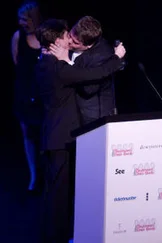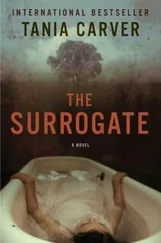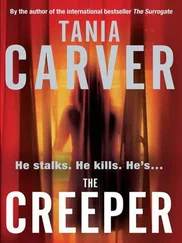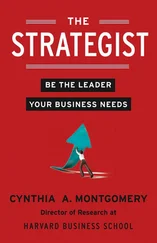2 out of 7 Core BUs collected. 0 of 8 Core Skills collected.
What do you see in this image?

Source: Rorschach Inkblot Test, Pearson Scott Foresman. (Public Domain).
Don't worry. We’re not testing you. Some folks see two people facing each other. Some see a crab. Some see lungs. Some see something entirely different. Which answer is right? Obviously, it's a crab. Just kidding – it's none of them. This is an intentionally ambiguous inkblot, meant to be open to interpretation. This inkblot-related insight will be obvious to anyone familiar with the Rorschach Test, but what wasn't obvious to us until we started studying the BUs of great managers is that conversations are splattered with inkblots – words that can be interpreted differently by different people. We at LifeLabs Learning have dubbed these “blur words.” Some common examples include “better,” “worse,” “less,” “more,” and the ever-popular “as soon as possible.”
 Great managers are always on the lookout for blur words. They notice when people use them. They notice when they themselves use them. Then they apply the BU we've called Deblur. They turn ambiguous words into information that is clear enough for everyone to understand. Here are some sample Deblurringquestions they ask.
Great managers are always on the lookout for blur words. They notice when people use them. They notice when they themselves use them. Then they apply the BU we've called Deblur. They turn ambiguous words into information that is clear enough for everyone to understand. Here are some sample Deblurringquestions they ask.
Sample Deblurring Questions
What does _____ mean to you?
Can you share an example?
What's your definition of _____?
What do you see as the impact of ____?
How would we measure that?
How would we know we've succeeded?
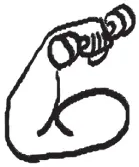
Mia has decided to hire a new person, but getting input from her team members is harder than she expected. Take a look at the comment below about one of the candidates, and mentally (or physically) underline the blur words you spot:
I don't recommend hiring this candidate. She was closed-off and standoffish the entire time. The other candidates we interviewed were much warmer. I wouldn't even suggest inviting her to the next interview round. The other candidates were also much more qualified .
Which words in this example are blurry? Here are the biggest blur words:
I don't recommend hiring this candidate. She was closed-off and standoffish the entire time. The other candidates we interviewed were warmer. I wouldn't even suggest inviting her to the next interview round. The other candidates were also more qualified .
 Notice how easy it could have been for Mia to leave the comment blurry and move onto the next candidate? Our brains are wired to fill gaps with snap interpretations. When we hear words like “standoffish,” “warm,” and “qualified,” our brains make instant assumptions about what these words mean. We take for granted that we are talking about the same behaviors when, in reality, we might have vastly different meanings. For example, when we asked three people to Deblura term as simple as “warm,” we heard:
Notice how easy it could have been for Mia to leave the comment blurry and move onto the next candidate? Our brains are wired to fill gaps with snap interpretations. When we hear words like “standoffish,” “warm,” and “qualified,” our brains make instant assumptions about what these words mean. We take for granted that we are talking about the same behaviors when, in reality, we might have vastly different meanings. For example, when we asked three people to Deblura term as simple as “warm,” we heard:
| Deblurring “Warm”: Three Distinct Definitions |
| They smile often and say complimentary things . |
They listen closely and ask you questions . |
They acknowledge people who helped them . |
How does Deblurringhelp managers become better faster?
Three of the Biggest Reasons Managers Benefit from Deblurring
1. Deblurring Prevents Miscommunication Faster
Blur words lead to misunderstandings of all shapes and sizes. Consider the experience of Sara, who got a frantic email from her manager (let's call him Sam). It went something like this: “Sara, the client needs the report by EOD. It's really time sensitive. Can you make it happen?”
 The email came in at around 4 p.m. Sara knew the report would take hours to compile, and she had dinner plans with her cousin who was in town for just one night. Sara had been looking forward to dinner, but she was eager to make a good impression on Sam. So, she sighed, called her cousin to cancel, and spent the next four hours preparing the report. By the time she was finished, she was exhausted and hungry but proud. That is until she got fired the next morning. It turned out that neither Sam nor Sara Deblurredthose three dangerous letters: EOD . To Sara, EOD meant End of her workday. To Sam and the client, EOD meant the end of the business day (5 p.m.). To this day, Sara shudders whenever someone uses that acronym.
The email came in at around 4 p.m. Sara knew the report would take hours to compile, and she had dinner plans with her cousin who was in town for just one night. Sara had been looking forward to dinner, but she was eager to make a good impression on Sam. So, she sighed, called her cousin to cancel, and spent the next four hours preparing the report. By the time she was finished, she was exhausted and hungry but proud. That is until she got fired the next morning. It turned out that neither Sam nor Sara Deblurredthose three dangerous letters: EOD . To Sara, EOD meant End of her workday. To Sam and the client, EOD meant the end of the business day (5 p.m.). To this day, Sara shudders whenever someone uses that acronym.
2. Deblurring Improves Feedback Faster
One of the most frustrating and damaging types of feedback is blurry feedback. Blurry praise like “Great job!” misses out on a learning opportunity. (What was it that made the job great?) Worse yet, blurry critical feedback like “You didn't try hard enough” is pretty much guaranteed to trigger defensiveness. Great feedback is blur-word-free. We'll dig much deeper into feedback skills in Chapter 9, but for now, if you want to rapidly improve the quality of your feedback, start by Deblurringit.
3. Deblurring Improves Decision-Making Faster
 One of the fastest ways to improve the quality of your decisions is to recognize how bias impacts your thinking. Bias is a preference for or against a person, group, or thing. Biases help people speed up their decisions, but biases (especially deeply ingrained biases around categories like ethnicity, race, gender, ability, age, class, sexual orientation, and religion) can also distort decisions – like hiring, firing, and promotion selections – without our conscious awareness. When you Deblur, you quickly increase your awareness of bias, leading to fairer and more thoughtful conclusions. For example, “What was it about that person that came across as unprofessional? What do you see as the impact?”
One of the fastest ways to improve the quality of your decisions is to recognize how bias impacts your thinking. Bias is a preference for or against a person, group, or thing. Biases help people speed up their decisions, but biases (especially deeply ingrained biases around categories like ethnicity, race, gender, ability, age, class, sexual orientation, and religion) can also distort decisions – like hiring, firing, and promotion selections – without our conscious awareness. When you Deblur, you quickly increase your awareness of bias, leading to fairer and more thoughtful conclusions. For example, “What was it about that person that came across as unprofessional? What do you see as the impact?”
So how do you rapidly bulk up your Deblurringmuscles? First and foremost, start mentally underlining the blur words you hear, read, and say. Recognition is the first step. When you notice other people's blur words, ask Deblurringquestions. When you catch yourself getting blurry, stop and clarify. For example:
“This quarter our priority will be improving our customer service response time …. To Deblur what I mean by “improving” – the goal is to cut our response time in half, from an average wait time of 10 minutes to an average wait time of 5 minutes by the end of this quarter.”
Читать дальше
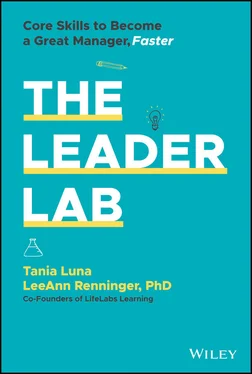

 Great managers are always on the lookout for blur words. They notice when people use them. They notice when they themselves use them. Then they apply the BU we've called Deblur. They turn ambiguous words into information that is clear enough for everyone to understand. Here are some sample Deblurringquestions they ask.
Great managers are always on the lookout for blur words. They notice when people use them. They notice when they themselves use them. Then they apply the BU we've called Deblur. They turn ambiguous words into information that is clear enough for everyone to understand. Here are some sample Deblurringquestions they ask.



